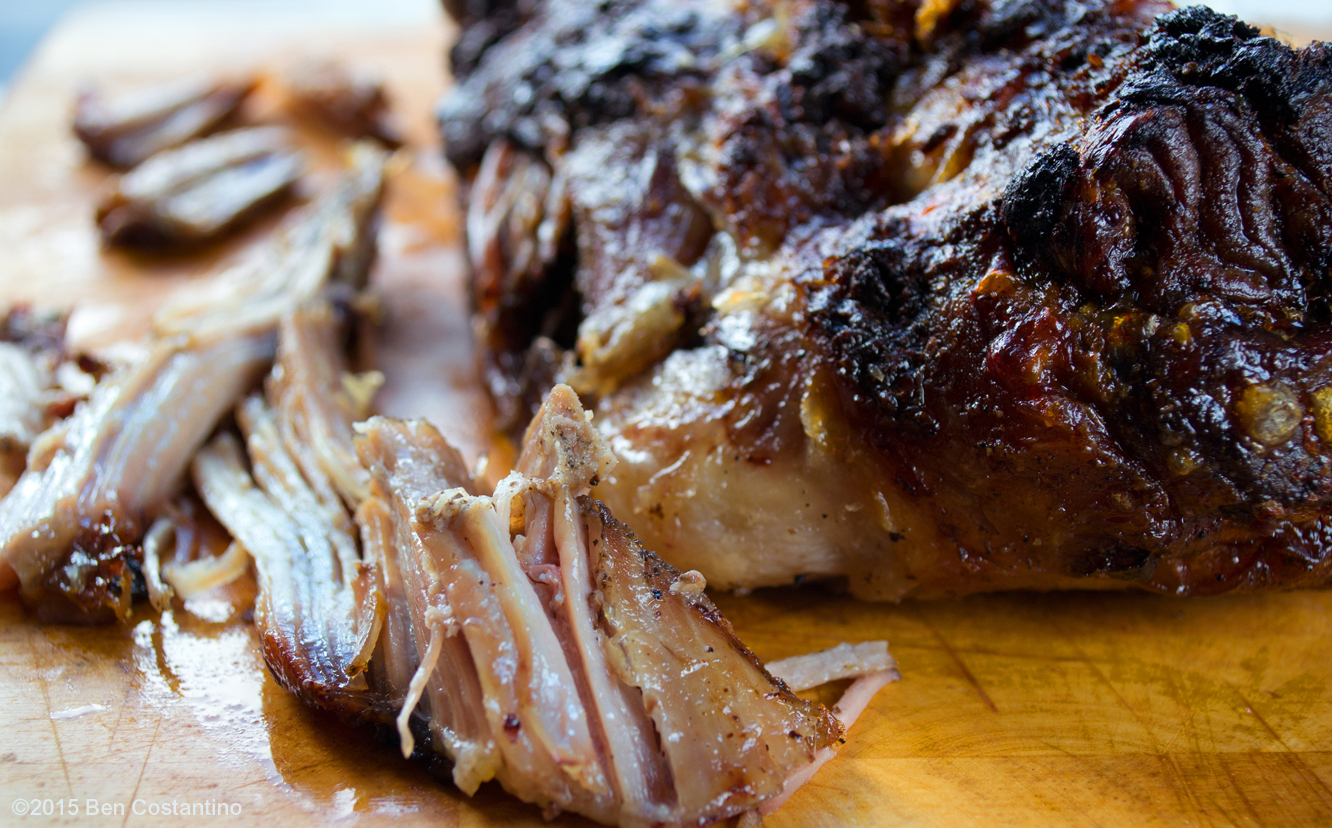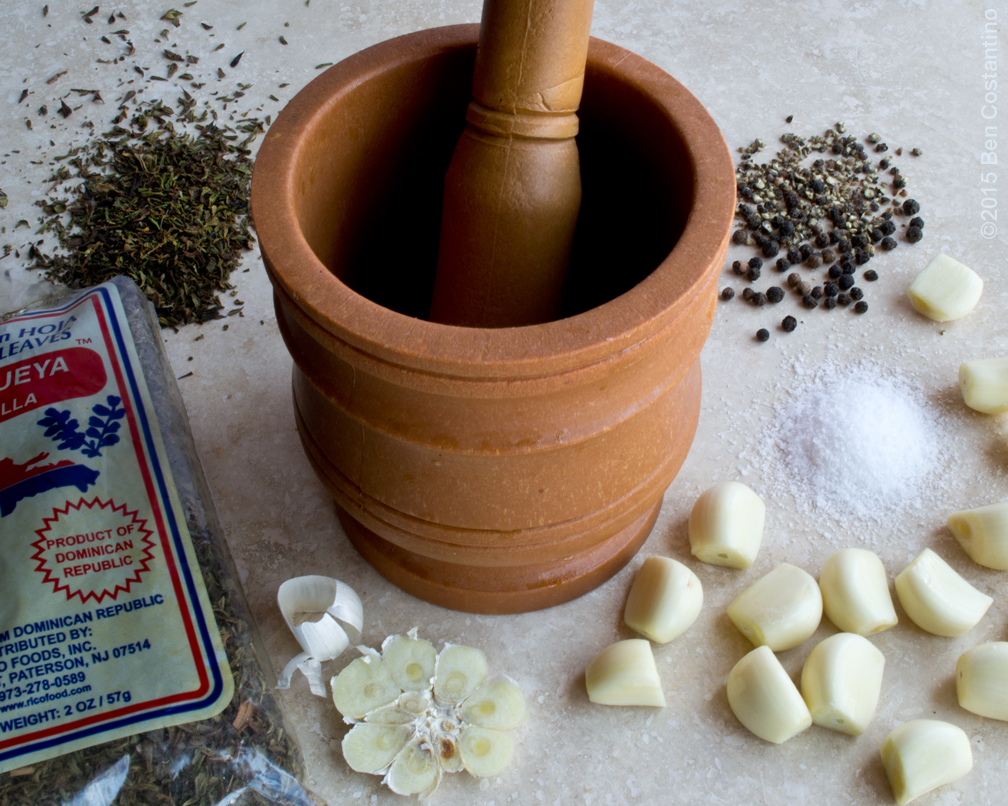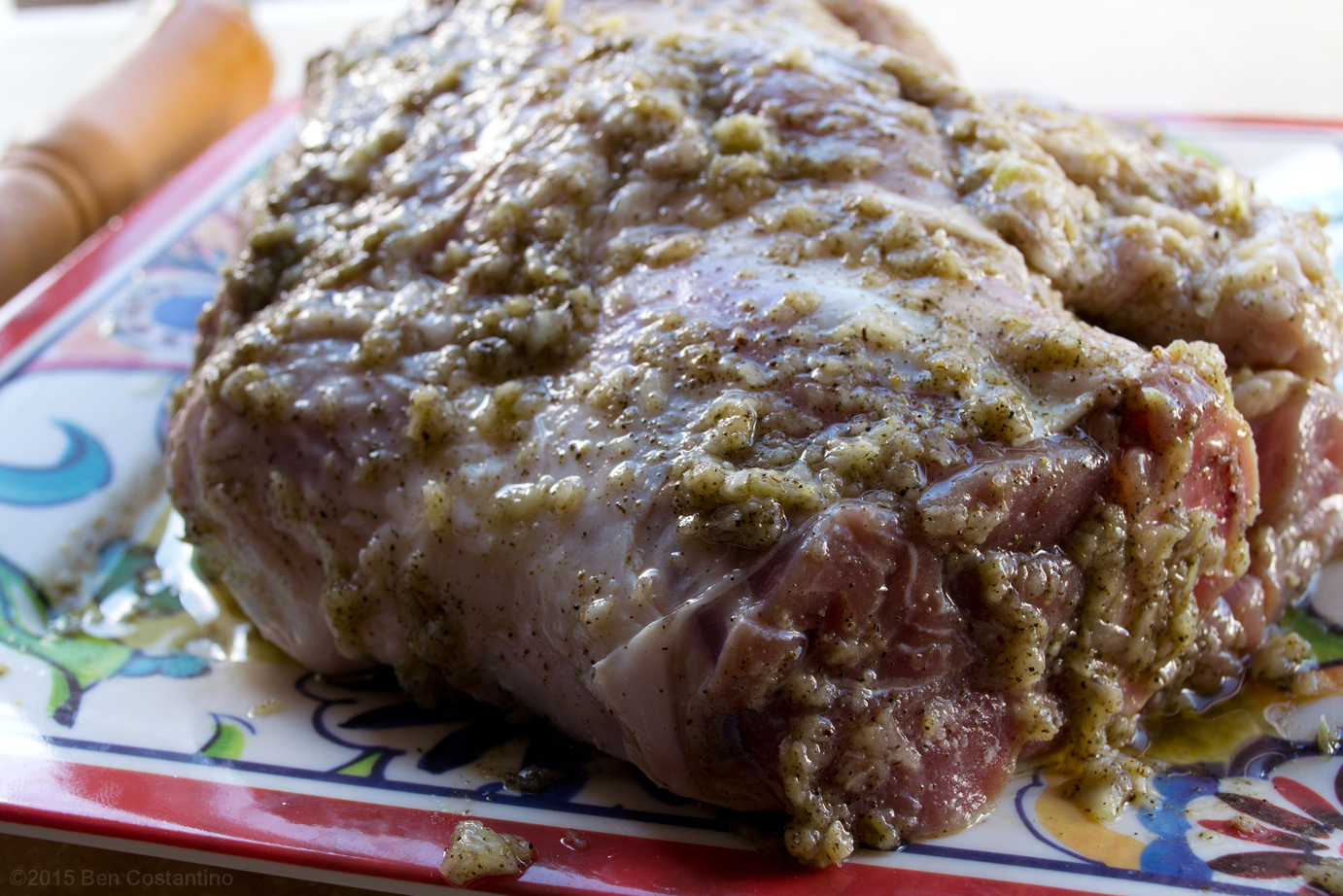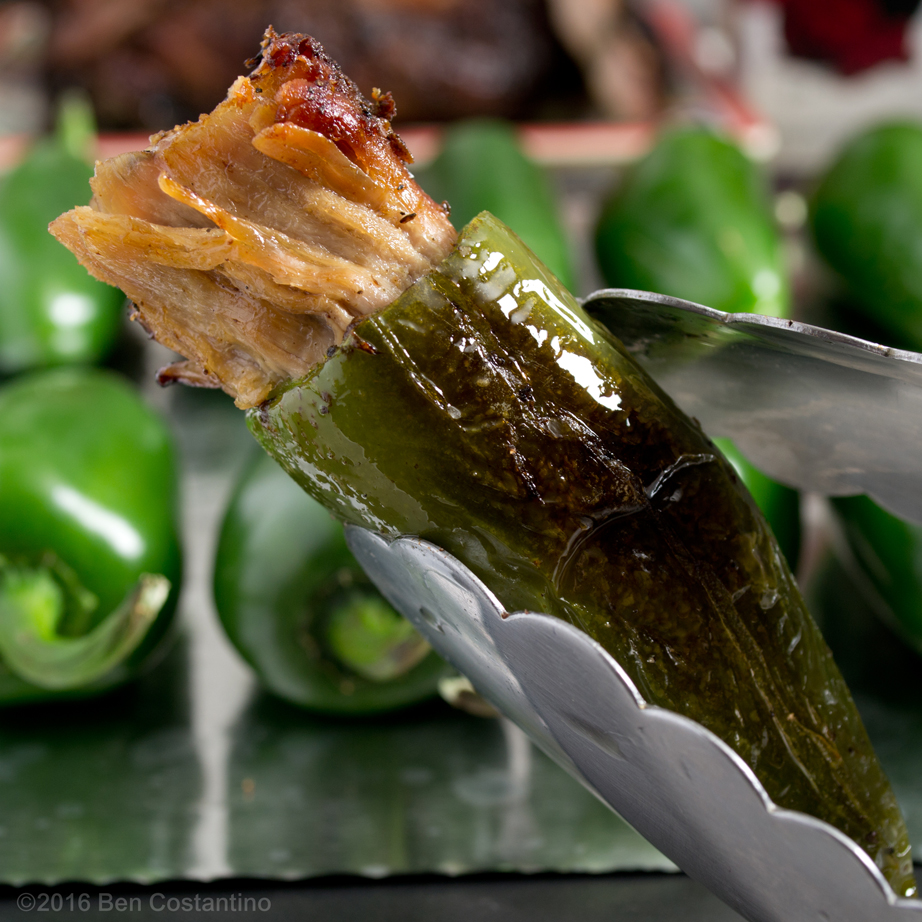

I learned about Puerto Rican style roasted pork shoulder from watching Chef Daisy Martinez on public television when I first moved to NYC, circa 2005. Traditionally called “Perníl” in Spanish, the pork shoulder is marinated in a garlic-based “Adobo” wet rub and a few other key ingredients, all mashed together into a paste using a mortar and pestle. The pork then spends a day or two marinating in the refrigerator. Yup, this recipe is Daisy’s and I’m spreading the word about how great it is! Once I learned this, cooking for large amounts of people has never been the same again because Perníl is a crowd pleaser for meat eaters. It’s also super easy because once you put it in the oven, you literally just leave it alone and let it do its thing.

Adobo seasoning utilizes three main ingredients … lots of garlic, black pepper, and Dominican oregano.
This basic technique is shared universally with countless variations from kitchen to kitchen among Caribbean Latin cooks. Spices and herbs often vary, but my variation on this succulent, slow rusted meat has been to incorporate the juice of a sour orange (or Seville orange) into the Adobo marinade. A popular choice of acid for the marinate is usually apple cider vinegar or white wine vinegar, but try the sour orange juice if you can. They are difficult to locate, but well worth hunting down. Also, it’s common to traditionally to leave the pork skin on and cook it until crispy, but I prefer it skinless.
Once you complete your roasted pork you can do all sorts of fun things with it. It’s great stuffed in Jalapeños peppers for party appetizers, used as a taco or quesadilla filling, or use it as a base for rice dishes such as Rice with Pigeon Peas.
 Adobo-Roasted Pork Shoulder
Adobo-Roasted Pork Shoulder

![]()
Ingredients
- 1 pork shoulder
- 10-15 cloves of garlic
- 2 teaspoons kosher salt
- 2 tablespoons ground Dominican oregano
- 2 tablespoons freshly ground black pepper
- 1/4 cup sour orange juice (or apple cider vinegar)
- 1/4 cup olive oil
![]()
Instructions
- Using a sharp knife or kitchen shears, remove tough skin on pork shoulder and any extreme fat you do not wish to consume. Some fat is okay and preferred, similar to the need for fat marbling in a good steak. Wash pork shoulder thoroughly with water over a sink.
- With a mortar and pestle, crush garlic and kosher salt until a consistent paste is formed with no garlic lumps.
- Thoroughly mix garlic paste, ground oregano, black pepper, sour orange juice and olive oil.
- Using a paring knife, cut several random pockets into the pork shoulder, each about one inch deep, just wide enough to fit 2 fingers. Fill the pockets with Adobo mixture and rub remaining Adobo all over the pork shoulder. Wrap in saran wrap and store in the refrigerator for 1 to 3 days before cooking.
- For ultimate success, it’s extremely important to remove the seasoned pork from the refrigerator before cooking to allow meat to come to room temperature … at least 1 hour for a small shoulder, 2 hours for a larger roast.
- Preheat oven to 500 degrees. For easiest cleanup, line a roasting pan with aluminum foil and place seasoned shoulder in the center. Roast uncovered at 500 degrees for the first 30 minutes to achieve a nice crispy sear. Reduce heat to 350 degrees and roast for an extra 30 minutes per pound until the meat becomes tender and falling apart from the bone easily … usually about 3 1/2 to 4 hours for a large shoulder. Once the pork is in the oven, it’s quite low maintenance with no need to flip, cover or baste. Rendered fat may smoke a little, but no need to worry.

See my recipe for stuffing pork shoulder into jalapeño peppers.

